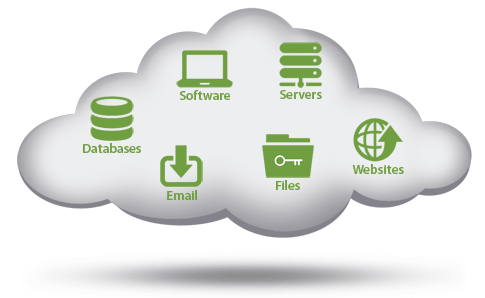Reasons Why Cloud Server Hosting is the Future of Web Hosting: Trends and Predictions

In recent years, cloud server hosting has emerged as a game-changer in the web hosting industry. Businesses of all sizes are increasingly turning to cloud server hosting for its flexibility, scalability, and cost-effectiveness. This article will delve into the reasons why cloud server hosting is considered the future of web hosting, exploring trends and making predictions about its continued growth and dominance in the market.
What is Cloud Server Hosting?
Before we dive into the reasons why cloud server hosting is the future of web hosting, let’s take a step back and define what it is. Cloud server hosting is a type of web hosting that utilizes cloud computing technology to provide scalable, flexible, and on-demand access to computing resources. Unlike traditional web hosting, which relies on physical servers and fixed infrastructure, cloud server hosting allows users to access a virtualized server environment that can be scaled up or down as needed.
The Rise of Cloud Server Hosting
Cloud server hosting has gained immense popularity due to its numerous advantages over traditional hosting solutions. One of the key reasons for its rise is the flexibility it offers. With cloud server hosting, businesses can easily scale their resources up or down based on their needs, ensuring optimal performance at all times. This scalability is particularly beneficial for businesses experiencing fluctuating traffic levels or seasonal spikes in demand.
Another significant factor driving the adoption of cloud server hosting is its cost-effectiveness. Unlike traditional hosting solutions that require businesses to invest in expensive hardware and infrastructure, cloud server hosting operates on a pay-as-you-go model. This means that businesses only pay for the resources they use, making it a more affordable option for many organizations.
Why cloud server hosting is the future of web hosting
Scalability and Flexibility
One of the primary reasons why cloud server hosting is the future of web hosting is its scalability and flexibility. With traditional web hosting, you’re limited to the resources available on your physical server. This means that if your website experiences a sudden surge in traffic, you may struggle to keep up with demand. With cloud server hosting, you have access to a vast pool of resources that can be scaled up or down as needed. This means that you can easily handle sudden spikes in traffic without sacrificing performance or reliability.
Cost-Effectiveness
Another significant advantage of cloud server hosting is its cost-effectiveness. With traditional web hosting, you’re often locked into a fixed contract that can be expensive and inflexible. With cloud server hosting, you only pay for the resources you use, which can be significantly more cost-effective. This makes it an attractive option for businesses and organizations that need to manage their budgets carefully.
Security
Security is another critical consideration when it comes to web hosting. Cloud server hosting offers robust security features that can help protect your website and data from cyber threats. With cloud server hosting, you can rest assured that your data is stored on multiple servers, which reduces the risk of data loss or corruption. Additionally, cloud server hosting providers often have advanced security measures in place, such as firewalls and intrusion detection systems, to help protect against unauthorized access.
Predictions for the Future of Cloud Server Hosting
Looking ahead, it is clear that cloud server hosting will continue to dominate the web hosting industry in the coming years. The ongoing advancements in technology, coupled with increasing demand for flexible and scalable hosting solutions, will drive further innovation in cloud server hosting services. We can expect to see continued improvements in performance, reliability, and security as providers strive to meet the evolving needs of their customers.
Furthermore, as more businesses transition towards digital transformation initiatives and embrace remote work models, the demand for cloud server hosting is expected to surge. The ability of cloud servers to support remote collaboration tools, e-commerce platforms, and data analytics applications makes them an essential component of modern business operations.
here are some potential developments that could shape the industry:
Increased Adoption
As more businesses and organizations recognize the benefits of cloud server hosting, we expect to see increased adoption rates in the coming years. This will lead to greater demand for cloud server hosting providers and increased competition in the market.
Improved Security
With cybersecurity threats becoming increasingly sophisticated, we expect to see improved security features and measures being implemented by cloud server hosting providers. This could include advanced threat detection systems, encryption technologies, and other security measures designed to protect user data.
Cloud Server Pricing
Cloud server pricing is also expected to evolve in the coming years. As more businesses adopt cloud server hosting, we expect to see pricing models that are more flexible and competitive. This could include tiered pricing plans, discounts for long-term commitments, and other pricing strategies designed to make cloud server hosting more accessible to a wider range of users.
Trends in Cloud Server Hosting
Looking ahead, several trends are shaping the future of cloud server hosting. One such trend is the increasing adoption of hybrid cloud solutions, which combine public and private clouds to create a more customized and secure environment for businesses. Hybrid cloud architectures allow organizations to leverage the benefits of both public and private clouds while addressing specific security and compliance requirements.
Another trend in cloud server hosting is the growing emphasis on security and data protection. As cyber threats continue to evolve and become more sophisticated, businesses are prioritizing security measures to safeguard their sensitive data stored in the cloud. Cloud server providers are investing heavily in advanced security technologies such as encryption, multi-factor authentication, and intrusion detection systems to protect their clients’ data from unauthorized access.
Conclusion
In conclusion, cloud server hosting is the future of web hosting due to its scalability, flexibility, cost-effectiveness, and security. As more businesses and organizations recognize the benefits of cloud server hosting, we expect to see increased adoption rates and greater competition in the market. By understanding the trends and predictions shaping the industry, businesses and organizations can make informed decisions about their web hosting needs and position themselves for success in the digital age.

